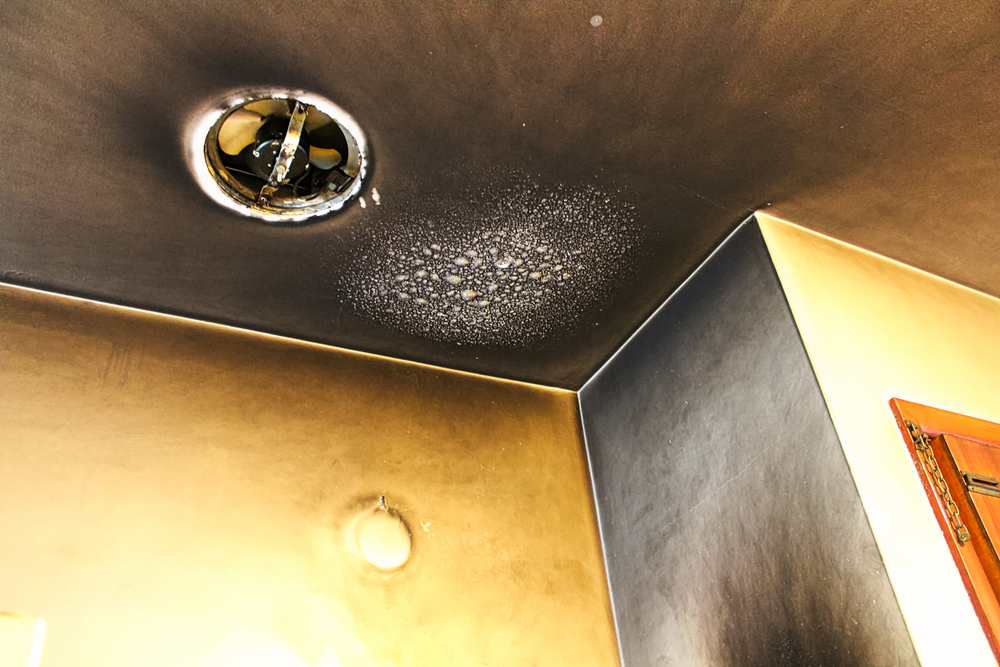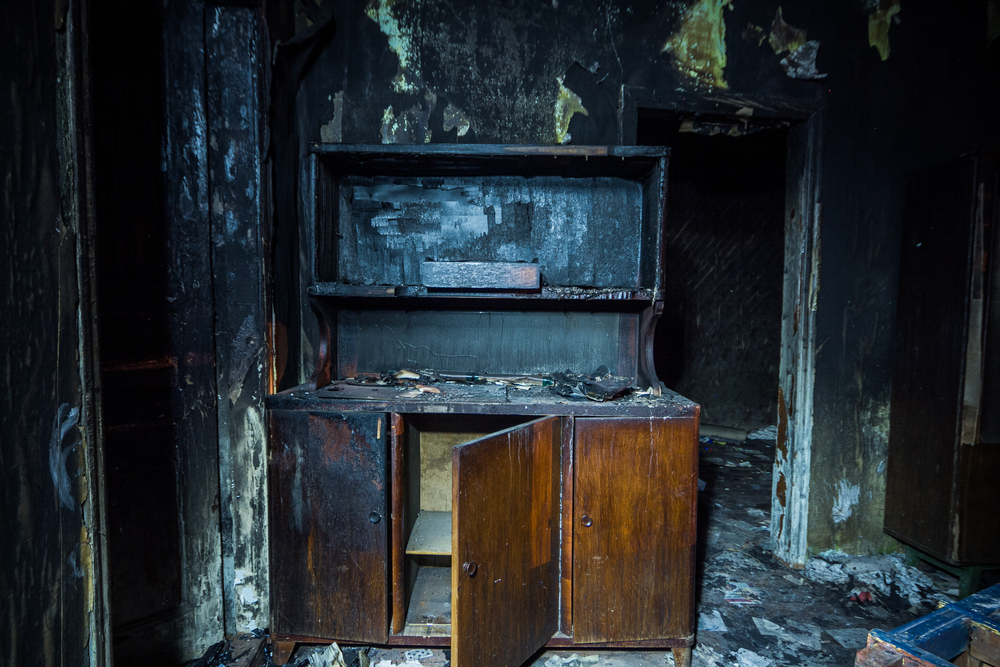For homeowners, property managers, and company owners equally, a fire is a terrible and daunting event with immediate and long-term effects. Small or huge, the fire can seriously compromise your health, property, and possessions. Focussing on safety, documentation, restoration, and emotional recovery—with particular insights and resources for Philadelphia, PA residents—this guide will offer thorough, practical measures to assist you negotiate the aftermath of a fire.
Understanding Fire Damage
Fire damage includes the smoke, soot, and water damage left behind as much as the flames consuming your home. If not well taken care of, these components might seriously compromise your house’s and your health. The National Fire Protection Association (NFPA) claims that unattended candles, electrical failures, and kitchen mishaps among other things start fires. The risk of fire might be considerably more in Philadelphia, where many residences are older and closely packed.
Reducing damage and starting the process of recovery depend on quick reaction following a fire. From guaranteeing your safety to submitting insurance claims, securing your property, and starting restoration, this guide will help you through every step you need to take.
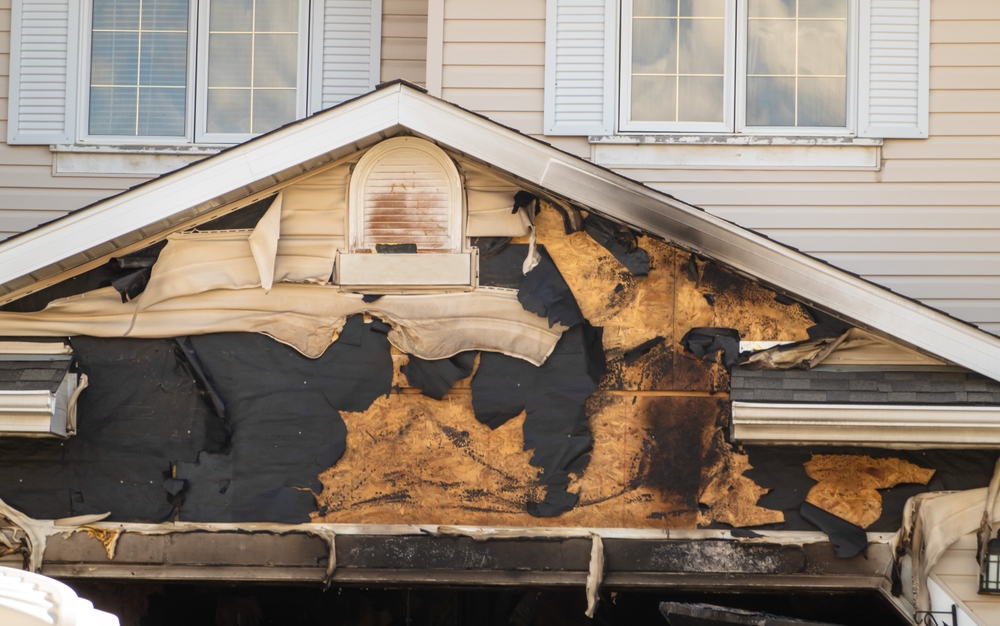
Safety First: Prioritizing Health and Well-being
Making sure everyone engaged is safe comes first and most importantly following a fire. A fire can cause often chaotic aftermath with hazards that might compromise your health. Here’s what to do:
- Assess Your Surroundings: Wait for the fire department to declare your surrounds safe before returning to your property. Particularly dangerous are structural damage, hot areas, and poisonous vapours.
- Check for Injuries: Look for indications of smoke inhalation, burns, or other injuries. Among the symptoms of smoke inhalation include coughing, dyspnoea, and vertigo. See medical help right away if anyone is hurt.
- Avoid Smoke and Soot Exposure: Steer clear of smoke and soot since their dangerous substances could aggravate respiratory problems and other medical conditions. Should you be visiting the property, don protective gear like long sleeves, gloves, and masks.
- Contact Emergency Services: In Philadelphia, you may call 911 for any immediate medical or safety issue. Additionally providing tools for locals to assist in the aftermath of a fire is the Philadelphia Restoration Services.
Documenting the Damage
Documenting the damage fully comes next once safety is guaranteed. The restoration process and insurance claims depend on this paperwork.
- Take Photos and Videos: Photograph and video capture of every impacted area—including structural damage, personal items, and any obvious soot or water damage. Get close-ups of broken objects and more expansive views of whole rooms.
- Create a Detailed Inventory: Make a detailed inventory of all broken or destroyed objects together with their likely worth. This inventory will enable your insurance provider to evaluate your losses and decide on pay-back.
- Preserve Evidence: Until your insurance adjuster has seen them, do not toss damaged goods. They might have to look over these things to properly handle your claim.
Contacting Emergency Services and Insurance
Once the damage has been recorded, it is time to contact your insurance company and the relevant authorities.
- Inform Local Authorities: If you haven’t already, call the Philadelphia Fire Department to guarantee the fire is completely out and document the incidence. Possibly for insurance, this report could be required.
- Reach Out to Your Insurance Provider: Talk to your insurance company. Tell your insurance agency right away. Usually involving an adjuster visiting your premises to evaluate the damage, they will walk you through the claims procedure.
- Understand the Claims Process: Your insurance provider might ask for further documentation, such receipts for damaged goods, and will give you forms to complete. Ask about the processing of your claim timeline and what coverage you might expect.
Securing the Property
Once the immediate hazards are taken care of, you should secure your property to stop more damage and guard it from theft.
- Board Up Windows and Doors: Broken windows and doors should be boarded up to stop illegal access and more element damage. Many Philadelphia restoration businesses provide emergency board-up services.
- Disconnect Utilities: Disconnect utilities to prevent further threats should the fire destroy water pipelines, gas lines or electrical cables. See your Philadelphia utility companies for help.
- Protect Valuables: Should any undamaged or precious objects remain on the premises, think about relocating them to a safe place. This can help stop extra damage or theft throughout the restoration procedure.
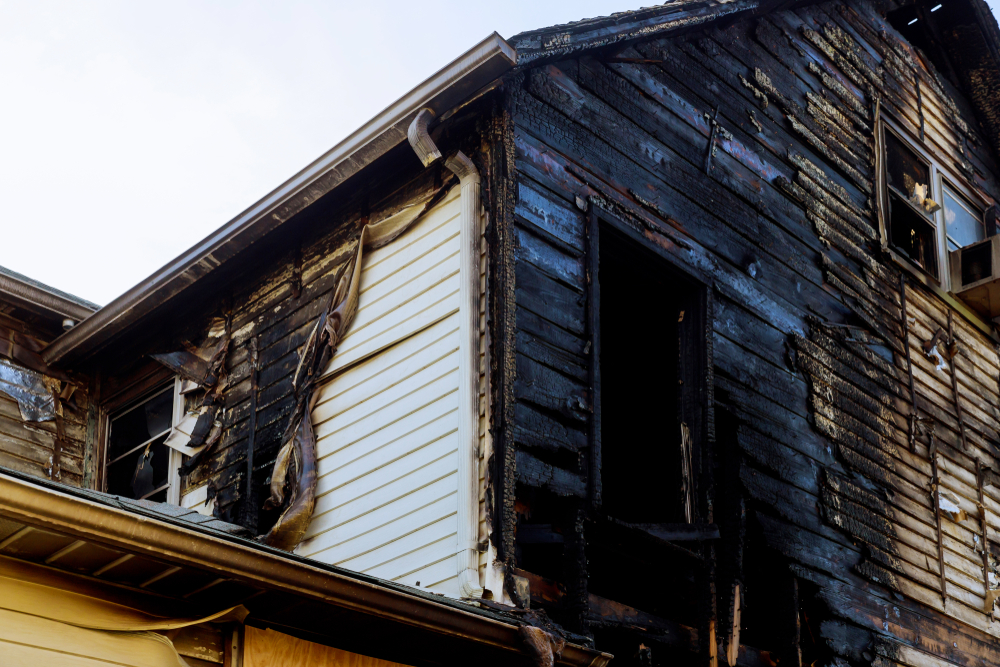
Temporary Housing Arrangements
Your house could be uninhabitable for some period following a fire. Arranging for temporary accommodation right away is crucial.
- Explore Accommodation Options: Depending on the degree of the damage, you could have to rent an apartment, stay with friends or relatives, or locate a hotel. See your provider; some insurance policies pay for temporary accommodation expenses.
- Consider Insurance Coverage: Many homeowners’ insurance plans include Additional Living Expenses (ALE) coverage, which can help cover meals, lodging, and other expenses paid for while your house is being rebuilt.
Hiring a Restoration Professional
Recovering your property following a fire calls for skilled knowledge and a complicated process. To manage the repairs and cleanup, you should use a respectable restoration business.
- The Role of a Restoration Company: Restoring firms focus in structural repairs, water damage control, smoke and soot removal, and fire damage cleanup. They employ specialist tools and methods to bring your house back to pre-fire state.
- Choosing the Right Professional: Selecting a Philadelphia restoration firm should involve looking for one licensed, insured, and certified by the Institute of Inspection, Cleaning, and Restoration Certification (IICRC). To be sure you are working with a respectable provider, look over internet reviews and request recommendations.
- Understanding the Restoration Process: Usually starting with an evaluation of the damage, the restoration process proceeds with trash collection, cleaning, and repairs. The degree of the fire will determine how long this process takes—sever weeks to several months.
Dealing with Insurance Claims
Although navigating the insurance claims process might be difficult, recovering from a fire depends critically on it.
- Gather Necessary Documentation: Make sure you have all the necessary documentation—pictures, videos, receipts, and the report from the fire department. Processing your claim will depend on your insurance carrier using these information.
- Communicate Effectively with Your Insurance Adjuster: Effectively interact with your insurance adjuster. When talking about the damage with your adjuster, be exact and exhaustive. See a second opinion or a public adjuster if you believe your claim is not being handled fairly.
- Understand the Claims Process and Timeline: Every insurance company handles claims from their own unique perspective. Enquire of your provider about the anticipated schedule and any possible delays so you may adjust.
Emotional Support and Recovery
Dealing with the fallout from a fire can wear on your emotional and mental health. One should ask help and act to control trauma and stress.
- Addressing the Emotional Impact: Dealing with the emotional impact of a fire is typical; one may feel overwhelmed, nervous, or despondent. Acknowledgement of these emotions will help you not hesitate to consult a mental health expert or counsellor.
- Seeking Counseling or Support Groups: Many Pennsylvanian municipalities provide support groups for fire victims seeking counselling or support. These organizations give you a forum to share your stories, get help, and pick coping mechanisms from those who have gone through same circumstances.
- Tips for Coping with Stress and Trauma: Self-care tips for coping with trauma and stress include getting enough sleep, eating healthily, and participating in leisurely activities that help you unwind. Maintaining a schedule and keeping in touch with loved ones who might be of help is also crucial.
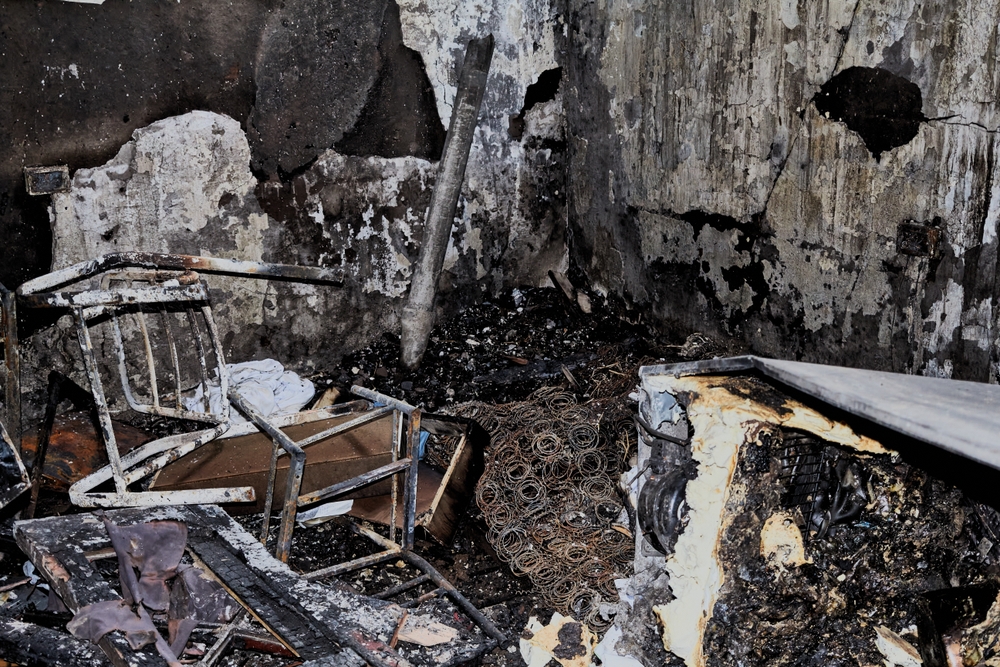
Prevention Tips
Although a fire cannot be always avoided, there are actions you can take to lower the danger and equip yourself for the future.
- Fire Safety Measures for the Home: Install smoke detectors on every level of your house and routinely test them to ensure fire safety. Make sure everyone in your house knows how to use a fire extinguisher; have one in a handy spot.
- Regular Inspections and Maintenance: Annually have a professional check the electrical system, heating equipment and chimney of your house. Older homes in Philadelphia could be more prone to electrical fires, hence regular maintenance is very crucial.
- Creating a Fire Escape Plan: Making a fire escape plan for your house and routinely running it through your family will help you Create a meeting spot outside the house and ensure everyone understands at least two ways to leave every room.
Conclusion
One of the most difficult things a homeowner could have to deal with is a fire; yet, knowing what to do will help to ease the recovery. You may start the road to recovery with confidence if you give safety top priority, record the damage, protect your property, and choose a respectable repair firm. Remember also your emotional requirements and act to stop more fires from starting. Your house and your life may be rebuilt following a fire with the correct strategy and tools.
Philadelphia Restoration Services
https://www.google.com/maps?cid=3399342399556699153
+1 267 668 0013
https://philadelphiarestorationservices.com/

